Red plan. How France fell
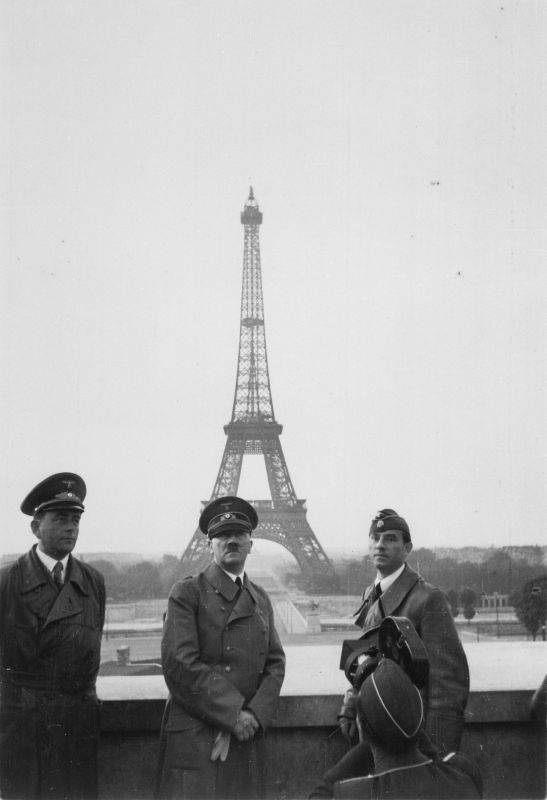
80 years ago, on June 14, 1940, German troops entered Paris without a fight. As a result of the successful offensive of the Wehrmacht, the main forces of the French army were defeated, fled or surrendered.
Operation Mouth (Red Plan)
After the fighting in the Dunkirk region was completed, the German High Command began the second stage of the battle for France. Directive of the High Command of the Wehrmacht (OKV) No. 13 of May 23, 1940 determined the plan and the main stages of the operation. On May 31, the High Command of the Ground Forces (OKH) sent a plan of Operation Rot to the troops. The Germans planned a swift attack to break the remaining enemy forces in France, break through the front, hastily created by the French south of the Somme and En rivers, with a quick break into the depths to prevent them from retreating into the depths and create a new line of defense.
At the first stage of the operation, the right flank of the German army advanced from the coast to Oise; on the second, the main forces struck between Paris and the Ardennes (the area in the north-east of France near its border with Belgium, has high hills and dense forest) to the south-east, with the aim of defeating the French group in the triangle Paris, Metz and Belfort, and on the Maginot line. The third stage - auxiliary operations with the aim of mastering the Maginot line.
The Germans regrouped their troops. Army Group "B" under the command of Bock as part of the 4th, 6th and 9th armies (48 divisions, including 6 tank and 4 motorized, 2 motorized brigades) took up positions from the coast along the Somme, the Oise-Aisne Canal to the Aisne River. Boca's armies were to make a breakthrough to the southwest from the Somme line, taking Le Havre and Rouen. With the left flank, go to the Soissons, Compiegne area, ensuring the actions of the main forces. Mobile connections were to play an important role. Gotha's 15th Panzer Corps from the Abbeville area was supposed to reach the mouth of the Seine. Kleist's Panzer Group (16th Panzer and 14th Motorized Corps) was to attack east of Paris and capture bridgeheads on the Marne.
Army Group "A" under the command of Rundstedt in the 2nd, 12th and 16th armies (45 divisions, including 4 tank and 2 motorized) is located on the river. Aisne and further east to Luxembourg. The Germans had to attack in the Reims direction, go to Bar-le-Duc, Saint-Dizier. To strengthen the attacking capabilities of the troops of Rundstedt, a Guderian tank group was formed (the 39th and 41st tank corps). German mobile units were supposed to go behind the Maginot line.
Army Group "Ts" under the leadership of Leeb as part of the 1st and 7th armies (20 infantry and 4 serf divisions) occupied positions on the Siegfried line and along the Rhine in readiness to capture the French fortified line. The 18th Army (4 divisions) was abandoned in the Dunkirk area, providing coastal defense. At the same time, the 18th Army served as a reserve; it was planned to be brought into battle during the development of the offensive. Also, 19 infantry divisions remained in the reserve of the main command.
French defense
After a crushing defeat in Belgium and Flanders, the French were stunned, demoralized and greatly weakened. Under the command of Weygan, 71 divisions remained. Affected by the relaxation of France during the “strange war”. The French military-political leadership did not form strategic reserves in case of failure, did not conduct a total mobilization of the country, population and economy. At the same time, mainly second-rate divisions remained, the best fell into a trap in Belgium and Northern France and were defeated. Many of the remaining units were weakened in battles, had a large staff shortage, weapons and technology. The soldiers lost heart. In four tank divisions, 50–80 vehicles remained. Of the troops that were able to evacuate from Dunkirk, formed a reduced division.
On the 400-kilometer front, from the mouth of the Somme to the Maginot Line, the French put up two army groups (a total of 49 divisions). The 3rd Army Group of General Besson, consisting of the 10th, 7th and 6th Armies, held positions from the coast to Neuchâtel. The army group included two British divisions led by General Brooke: the 51st Scottish, transferred from the Maginot Line, and the 1st Armored Division, which arrived from England. Somme positions were weak. Attempts by the Allies to liquidate the enemy bridgeheads in the area of Abbeville, Amiens and Peronn did not lead to success.
The 4th group of armies of General Huntziger in the 4th and 2nd armies occupied the defense from Neuchâtel to the Maginot Line. The 2nd group of armies of General Pretel as part of the 3rd, 5th and 8th armies defended the Maginot line. In the 2nd group of armies, only 17 divisions remained. Despite the losses, the French still had a large fleet of air forces. However, the command could not organize and use all the planes in battle. In particular, significant aviation the group remained in North Africa. The British also did not begin to transfer aircraft to France, obviously, suggesting the imminent collapse of an ally and the need to defend the British Isles from the air.
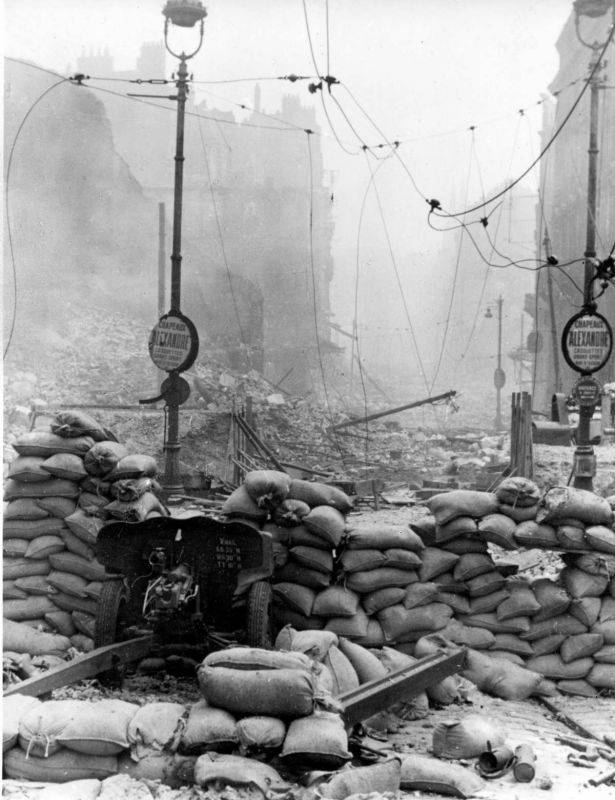
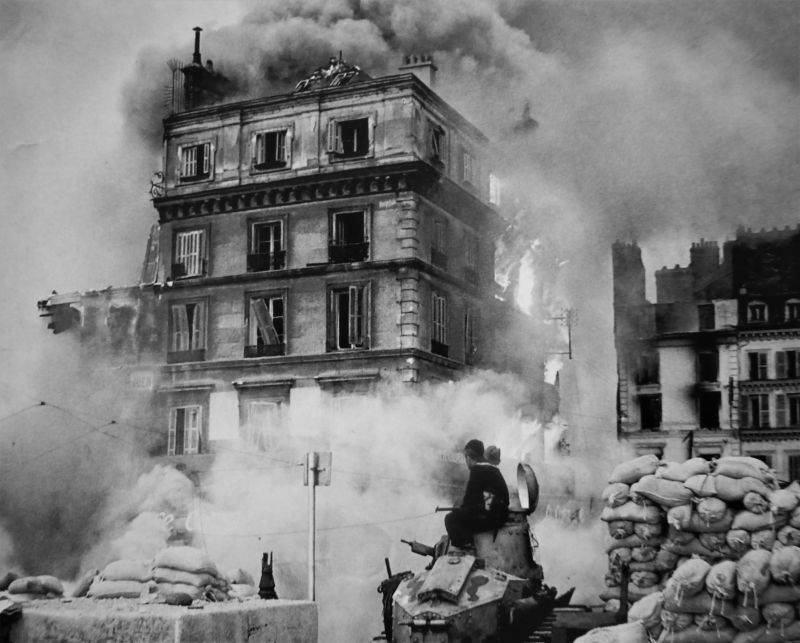
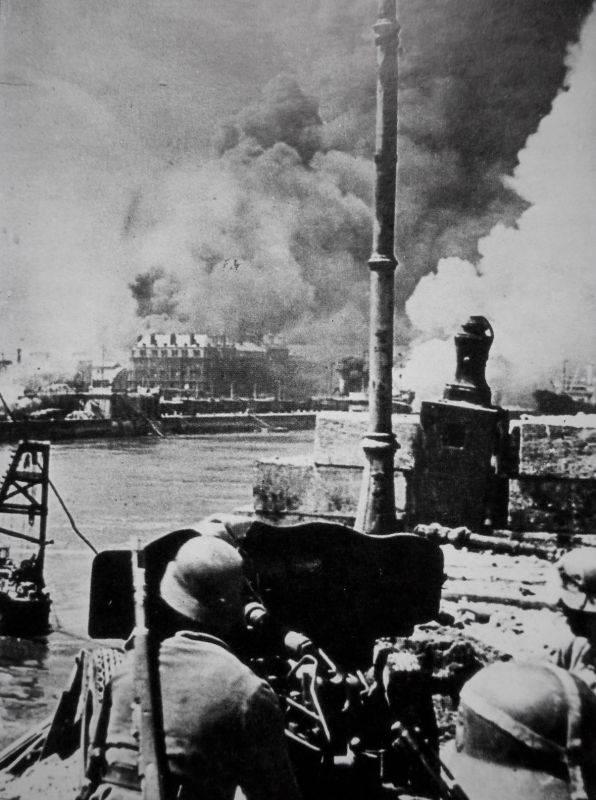
The course for surrender
On May 25, the French commander-in-chief Weygang at a meeting of the military committee outlined a defense plan. It was planned to meet the enemy on the borders of Somme and Ena, covering the capital and the central part of the country. The command gave instructions to create defensive lines, strongholds, in which the troops were to stay even in the case of encirclement. That is, the French plan was a continuation of the old: a solid front line, stubborn and tough defense. No ideas, decisive action, if the enemy breaks the line of defense, was not proposed.
True, the stubborn defense of the army made sense if at the same time total mobilization began in the rear. The government and the military will call on the people to defend the country and hold major mobilization events. France, even in the face of a catastrophe, had more human and material resources than the Third Reich. If the French leadership could drag out the war, then Germany had a bad time. In particular, the occupation of all France would require tremendous efforts from the Reich, a huge contingent of troops to control hostile territory. However, French politicians and the military did not want a total war and mobilization, confrontation not for life, but for death. When large cities become a battlefield, they bind the enemy’s forces, but lead to numerous casualties and material losses.
Weygans plan did not provide for the mobilization of the people to fight the enemy. There was no action plan in case the government left the metropolis in the colony to continue the struggle. And France had a huge colonial empire with large resources, a fleet that ruled out the possibility of a quick victory for Germany if the war continued. And the prolongation of the war put an end to all plans of Hitler, leading in the end to an internal crisis and defeat. France had everything to continue the war. Human and material resources of the colonies. Representatives of the civil and military administration in the colonies in North Africa, the Levant (Syria and Lebanon), and in French Equatorial and West Africa reported to the government about the possibility of continuing the struggle. Only in North Africa there were 10 divisions, they could become the core of the new army. The presence of a large fleet allowed to remove part of the troops, 500 thousand reservists and weapons from the metropolis to North Africa. There was a gold reserve exported from the French Bank to the United States, Canada and Martinique. Gold could pay for weapons, ammunition and ammunition. Already signed contracts for the supply of weapons from the United States. There was a strong ally of Britain, with a world colonial empire.
However, the French government and generals did not timely prepare plans for the prospects of the struggle against Germany, and Weygand rejected all proposals to continue the war outside the metropolis. Weigan himself did not believe in the possibility of a long defense on the Somme and Aene, and thought about surrender. “But since he did not want to take responsibility for it, his actions were reduced to persuading the government to surrender,” General de Gaulle noted in his memoirs. Weygand and Marshal Pétain (a member of the Reynaud government) began a line of surrender. They gained considerable weight in the government. True, General de Gaulle, an ardent champion of the struggle to the end, was appointed to the place of the deputy minister of defense. But he recently received the rank of brigadier general and had no serious influence in the French military and political elite.
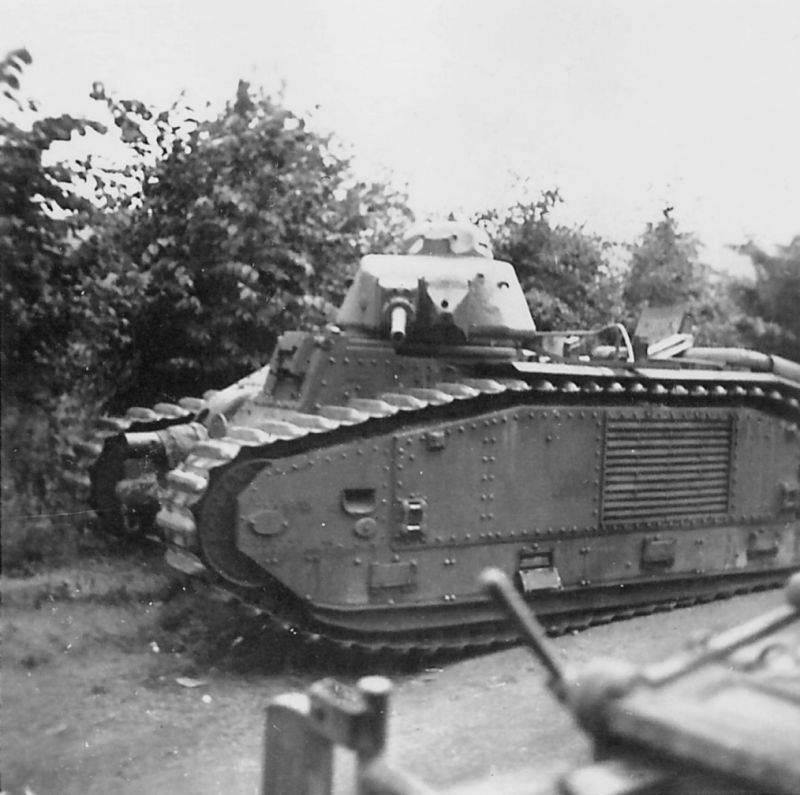
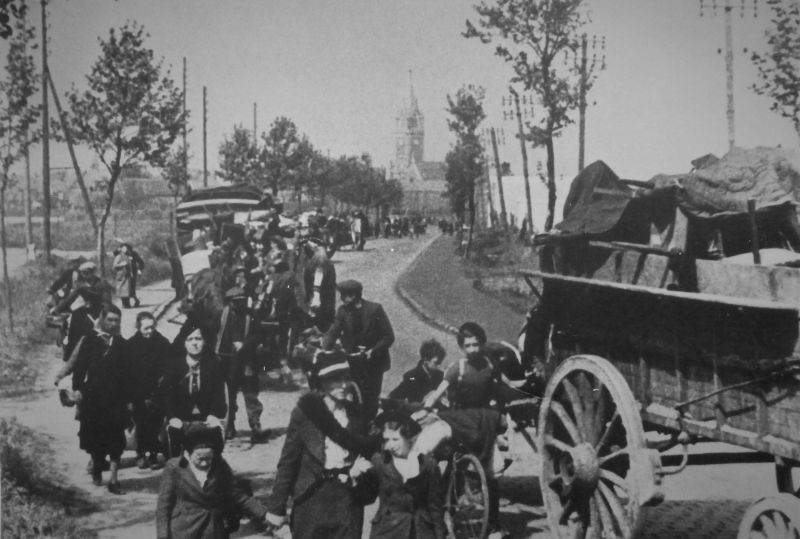
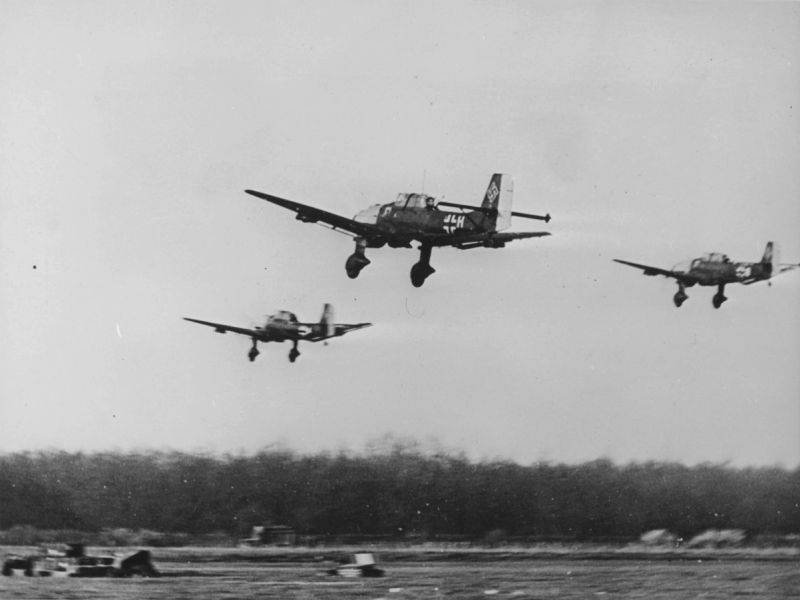
Collapse of defense on the Somme
On the morning of June 5, 1940, German aviation launched a series of powerful strikes on the enemy’s defense. Then the forces of Army Group B advanced into a general offensive. Goth's tanks attacked from the bridgehead at Abbeville, the Kleist group acted with a bridgehead at Amiens and Perron. Goth's divisions on the first day advanced 10 km and on June 6 broke into the defenses of the 10th French army of Altmeyer. The Hitlerites, having beaten off the counterattacks of the English Panzer Division, cut through the French army. The left flank was blocked by the sea, the right wing of the 10th Army retreated to the Seine. On June 8, German tanks were on the outskirts of Rouen. The Anglo-French forces pressed to the sea capitulated a few days later.
Kleist’s troops could not immediately break the resistance of the 7th French Army of General Frer. The French stubbornly fought back. However, the breakthrough of the Goth tanks in the Rouen direction eased the position of the 6th German army of Reichenau. French resistance weakened and the Nazis reached Compiegne. The troops of the 9th German army crossed Enu at Soissons and squeezed the left wing of the 6th French army of Tushon. As a result, under the pressure of the enemy, the French defense on the Somme collapsed. The French command quickly began to create a new line of defense from the mouth of the Seine to Pontoise on the river. Oise, then through Senlis to the turn of the river. Urk. The Paris Army was hastily advanced northwest of the capital, created on the basis of the Paris garrison and some parts of the 7th and 10th armies.
Army Group A launched an offensive on June 9. On the first day, the Germans crossed Enu and created a bridgehead in the area of Retel. Guderian tanks were thrown into battle. The German mobile unit reached the operational space and rushed south, bypassing the Maginot line. The French tried to counterattack with the forces of the reserve divisions, but the Germans easily parried and continued the offensive.
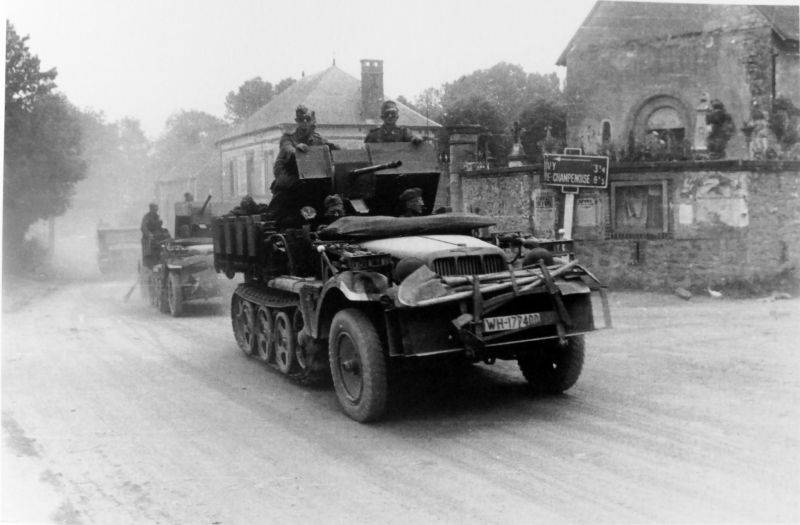
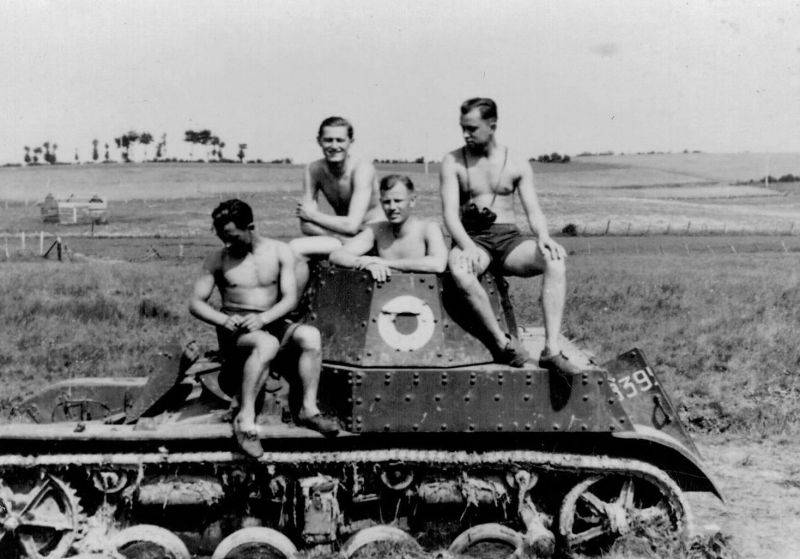
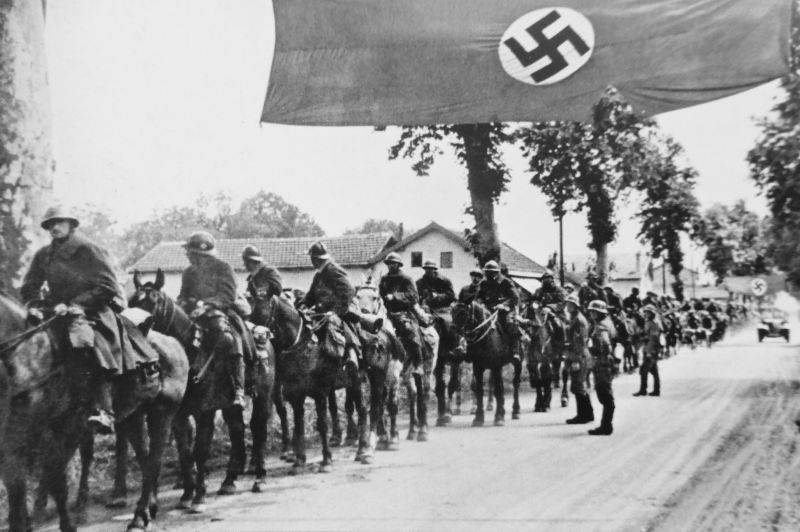
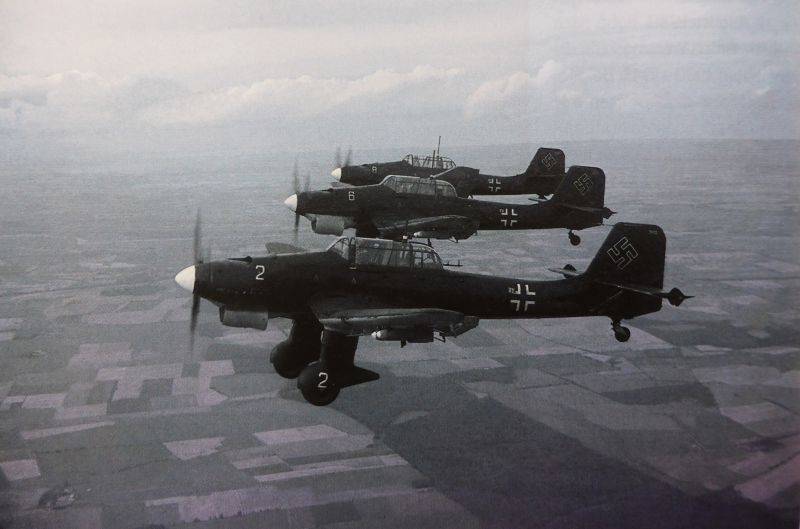
Germans in Paris
On June 10, Italy (How the Duce tried to take over southern France) However, despite the large numerical superiority over the French Alpine army, the Italian troops could not create a serious threat to the enemy. On the same day, the French government fled from Paris to Tours, then to Bordeaux, essentially losing control of the country.
On June 11, the Allies Supreme Council was held in Briard. The British understood that the French were inclined to surrender. Churchill tried to extend the resistance of the French army. He promised to land additional forces on the mainland, supported the French hopes for US help, spoke about the possibility of developing a guerrilla war. However, he refused to increase the number of British aircraft that participated in the battle for France. Weigan in his report outlined a hopeless military-strategic situation. He reported the loss of control, the lack of reserves, the inability to continue the fight if the new line of defense collapses.
On June 12–13, a meeting of the French government took place in Canje near Tours. The main question was the possibility of concluding a truce with Hitler. Weigan openly demanded surrender. He said that the continuation of the war will lead the country to riots and revolution (the ghost of the Paris Commune). The commander in chief lied that the Communists had already raised an uprising in Paris. The “Verden Lion” Peten also argued for the need for surrender. However, he demanded that the government remain in France. The defeatists did not want some members of the government and parliament to flee to the colonies, where they could create a new center of resistance.
Meanwhile, the front fell apart. The French were unable to organize a new solid defense line. On June 12, the Nazis crossed the Seine. In the east south of the border of the river. Marne Germans reached Monmiraya. Guderian's tanks irresistibly rushed south. The organized resistance of the French army was broken. With the consent of the government, Weigan declared the capital an open city and surrendered without a fight. On the morning of June 14, the Nazis entered Paris. The huge city was almost empty, most of the population escaped. Millions of French flocked to southern France.
To be continued ...
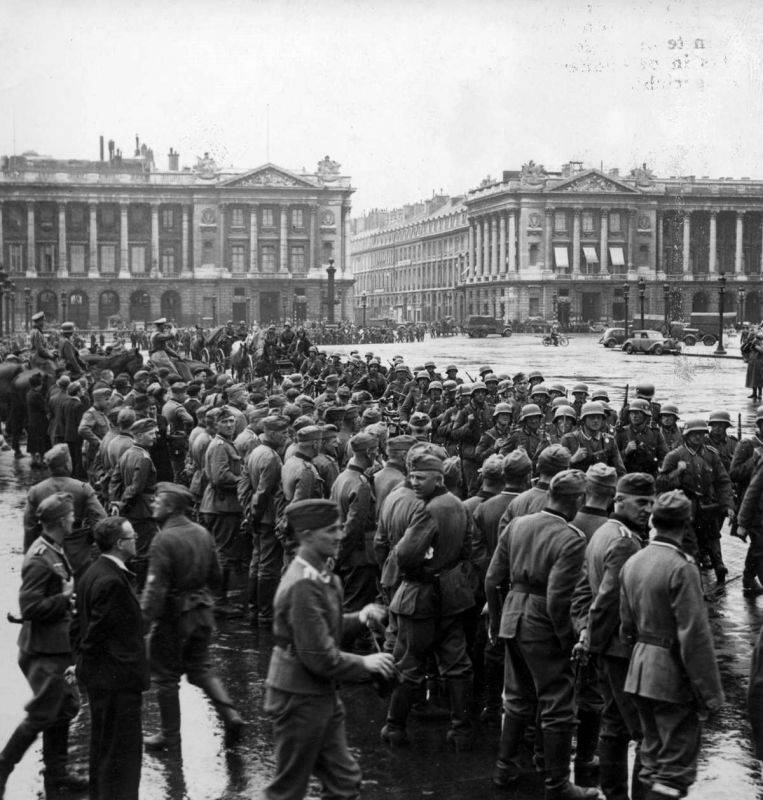
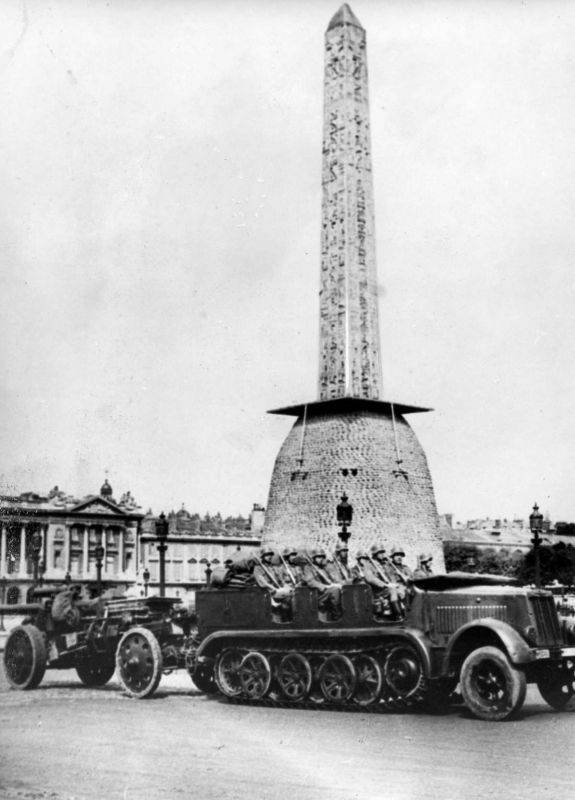
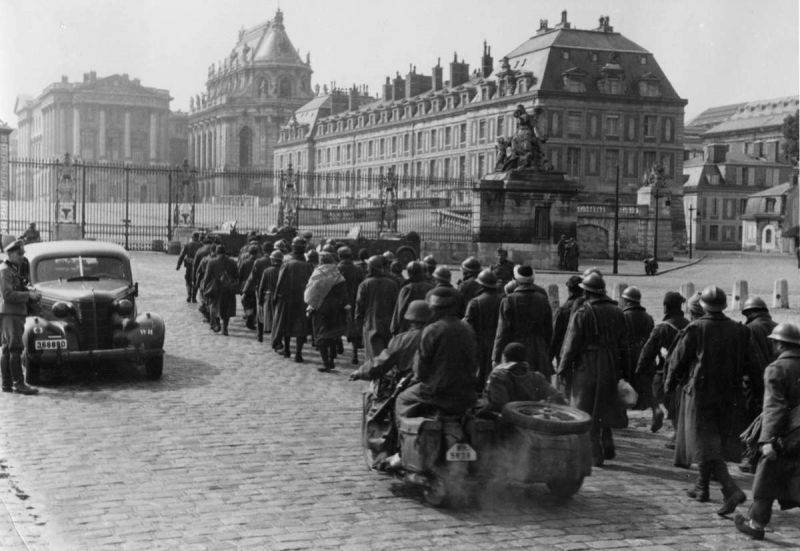
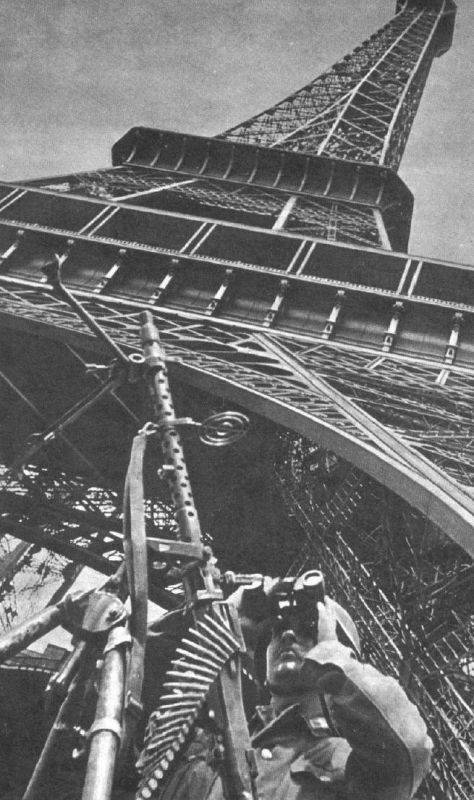
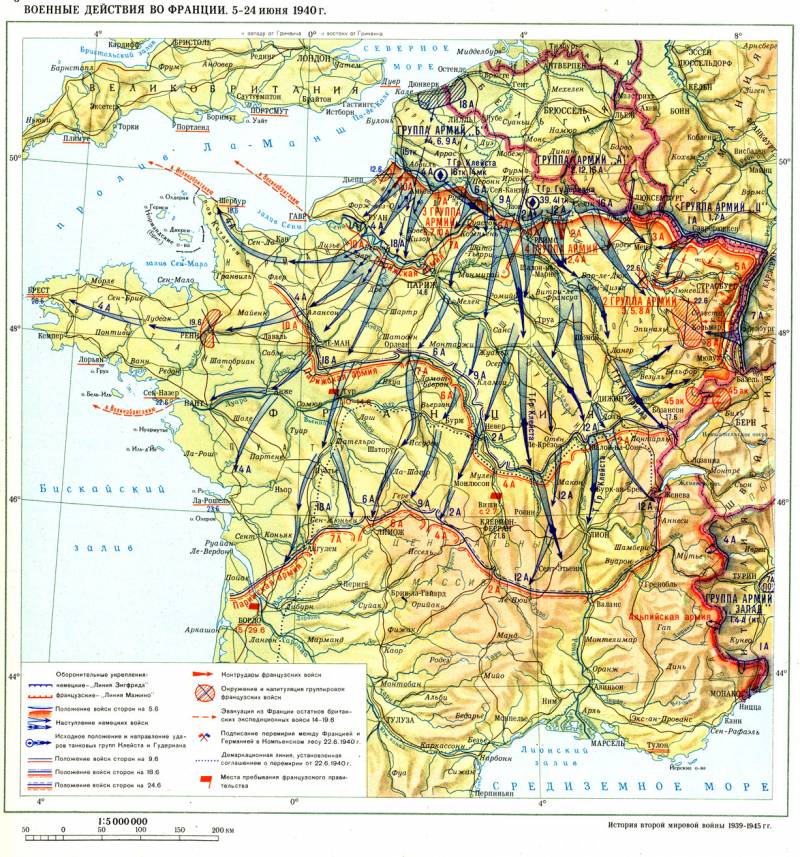
Information